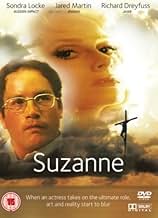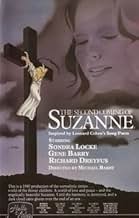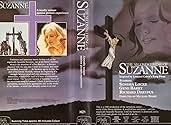Jared Martin plays an aspiring filmmaker obsessed with the idea of Christ as a woman, and tries to film his vision with Sondra Locke as his subject. Supposedly based on a song by Leonard Coh... Read allJared Martin plays an aspiring filmmaker obsessed with the idea of Christ as a woman, and tries to film his vision with Sondra Locke as his subject. Supposedly based on a song by Leonard Cohen, which is used in the film.Jared Martin plays an aspiring filmmaker obsessed with the idea of Christ as a woman, and tries to film his vision with Sondra Locke as his subject. Supposedly based on a song by Leonard Cohen, which is used in the film.













